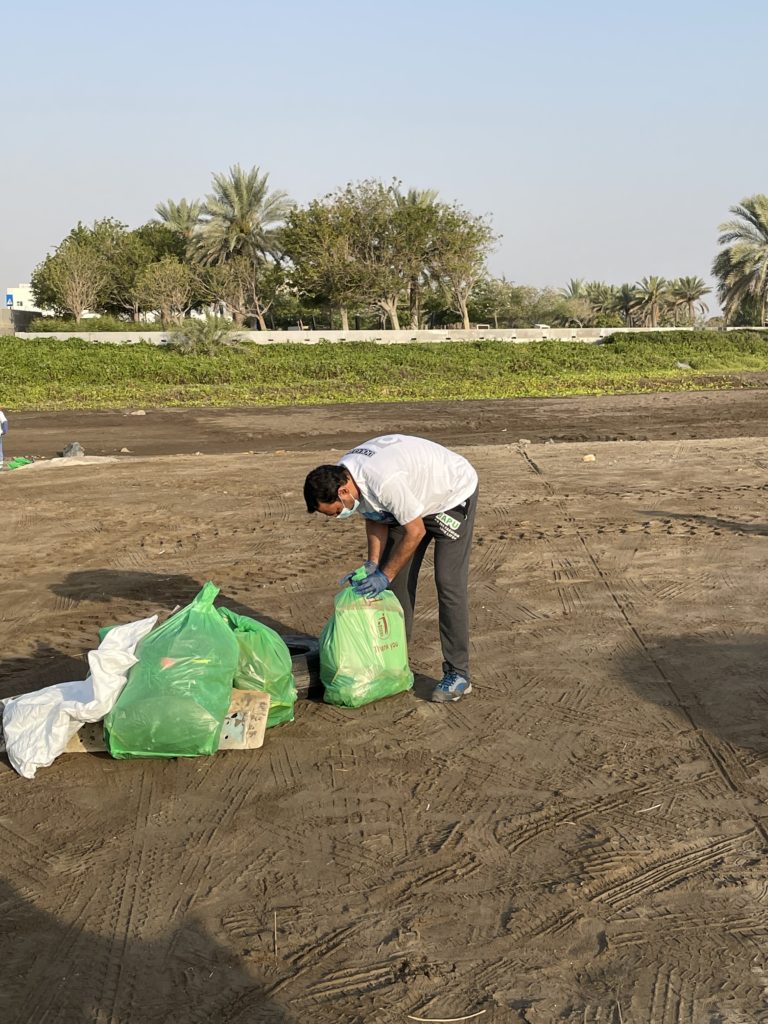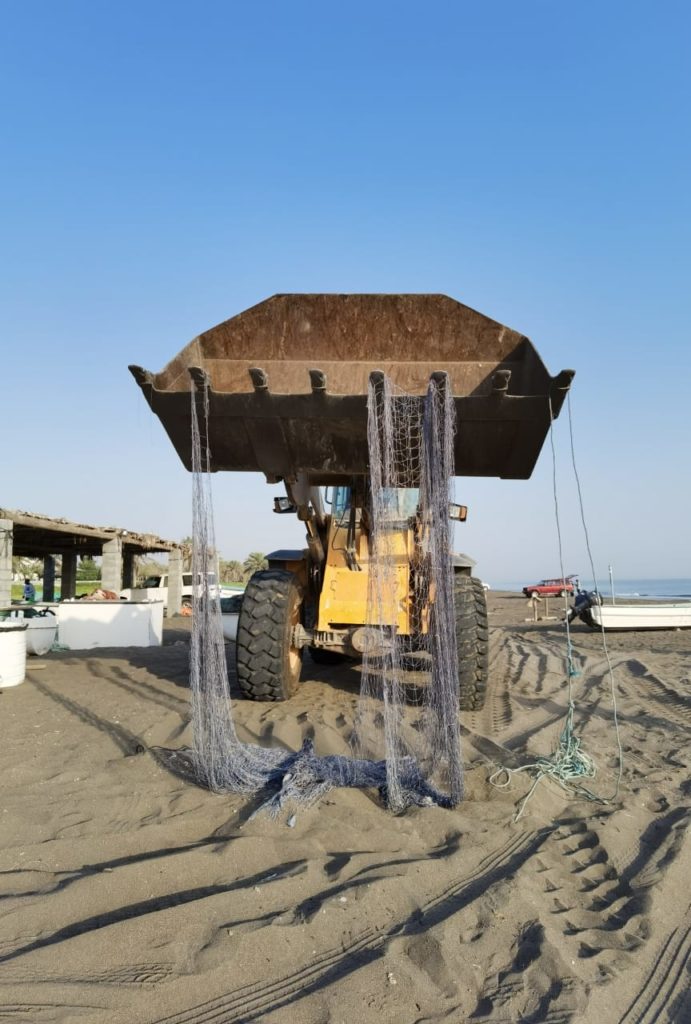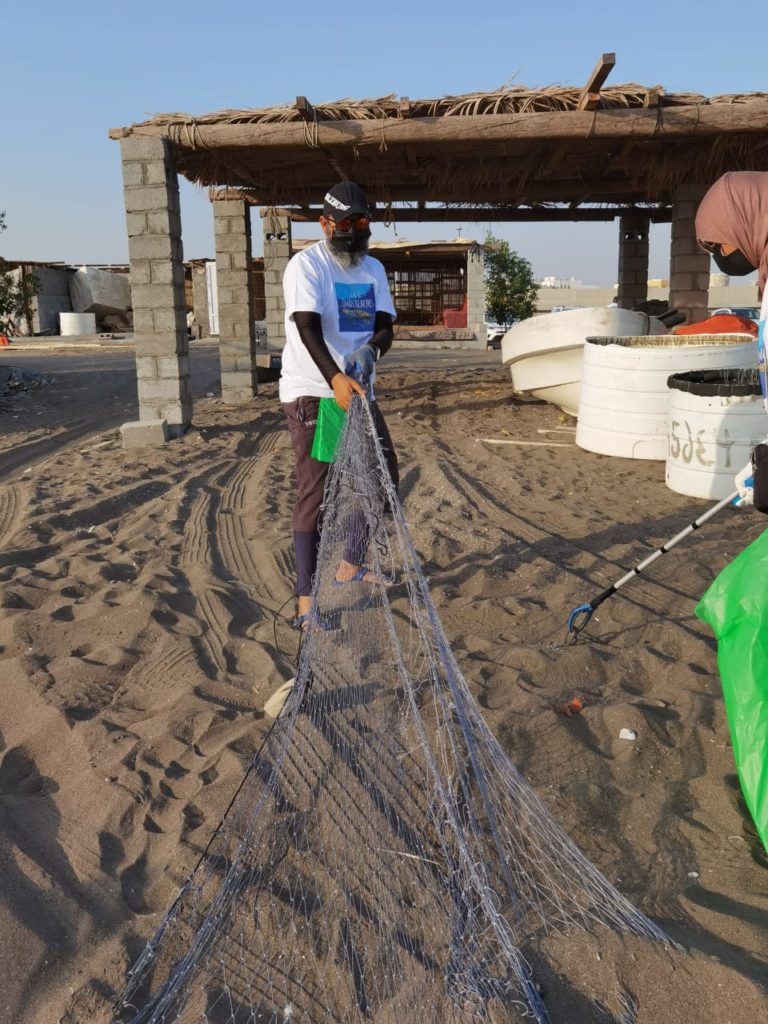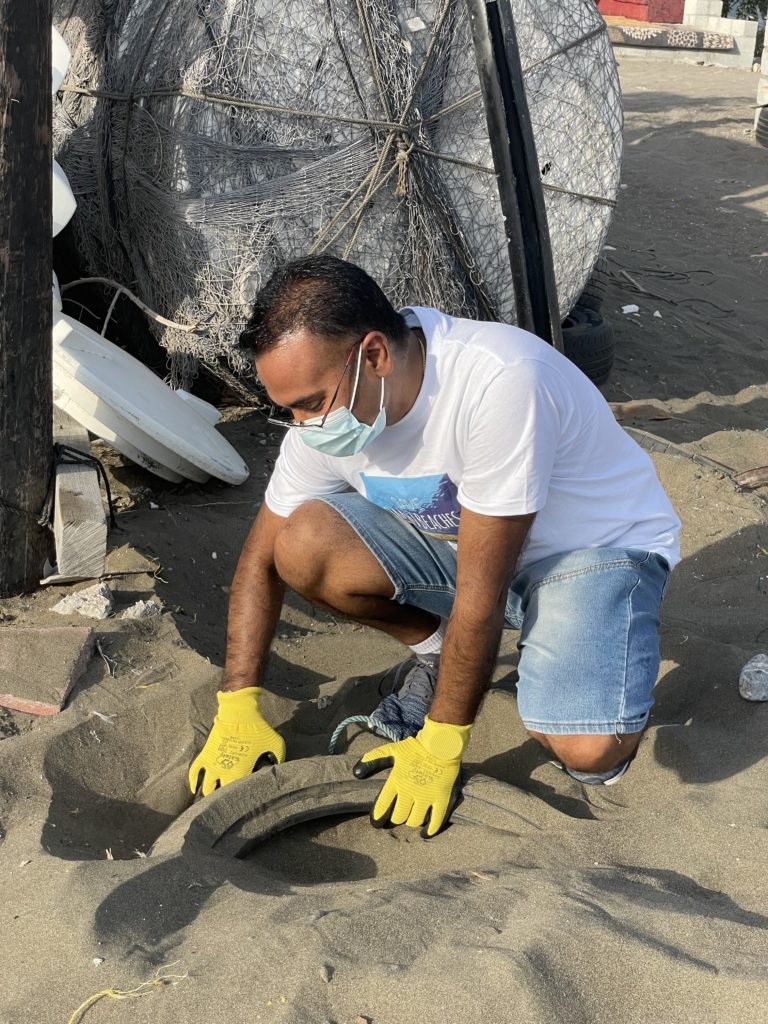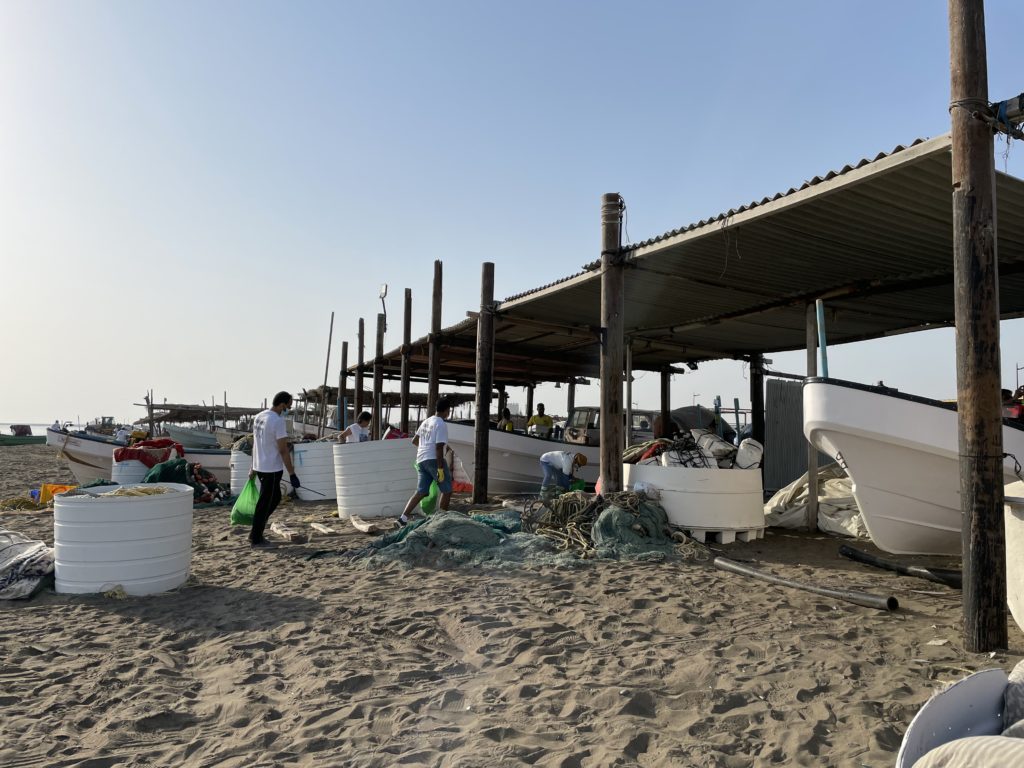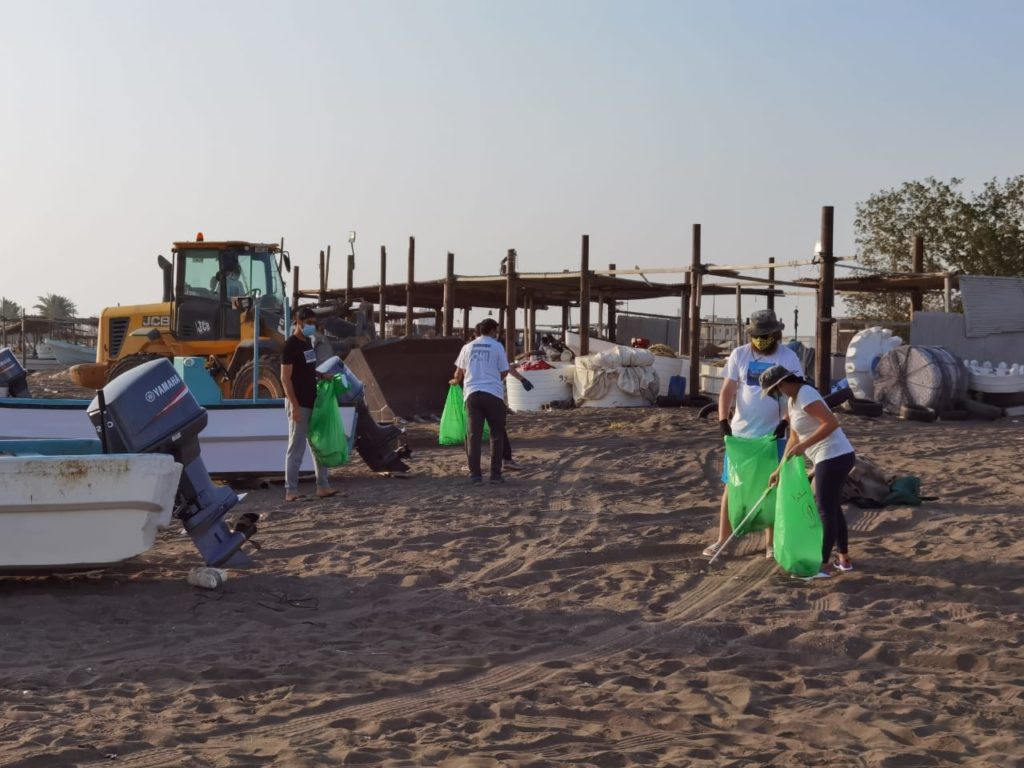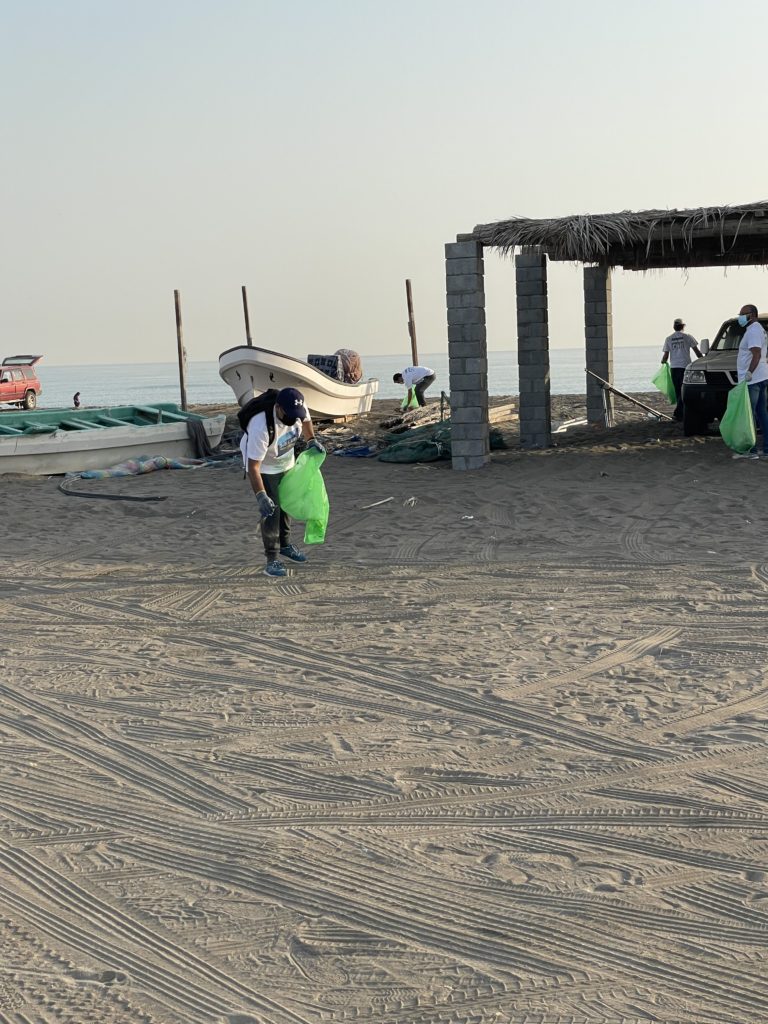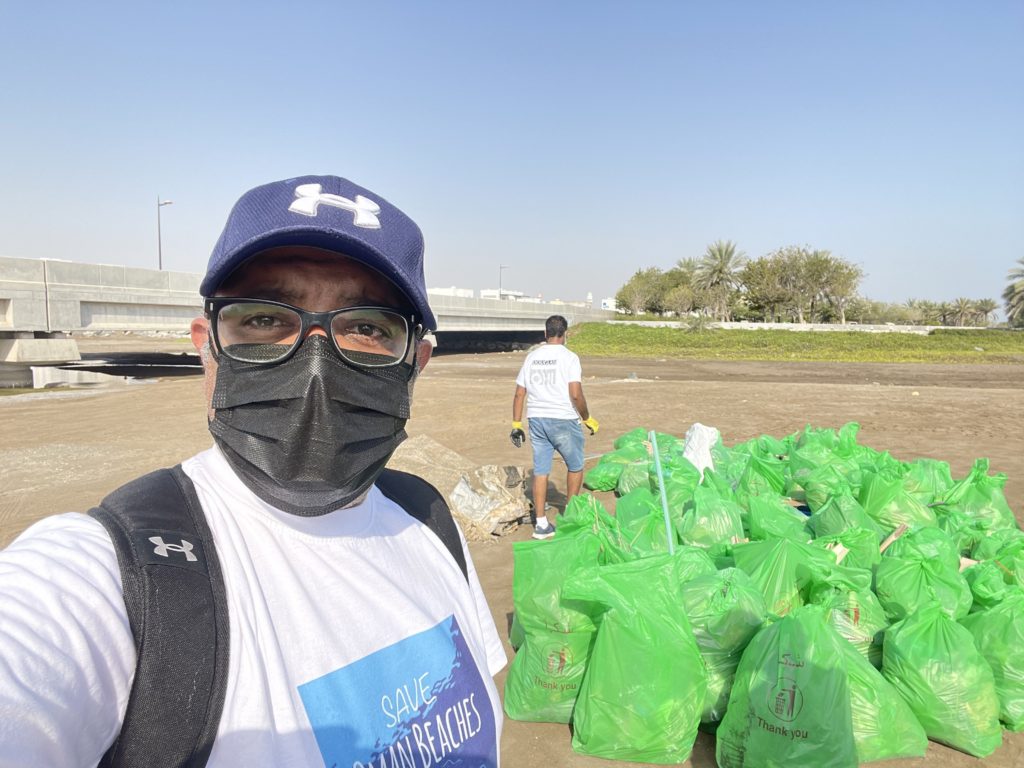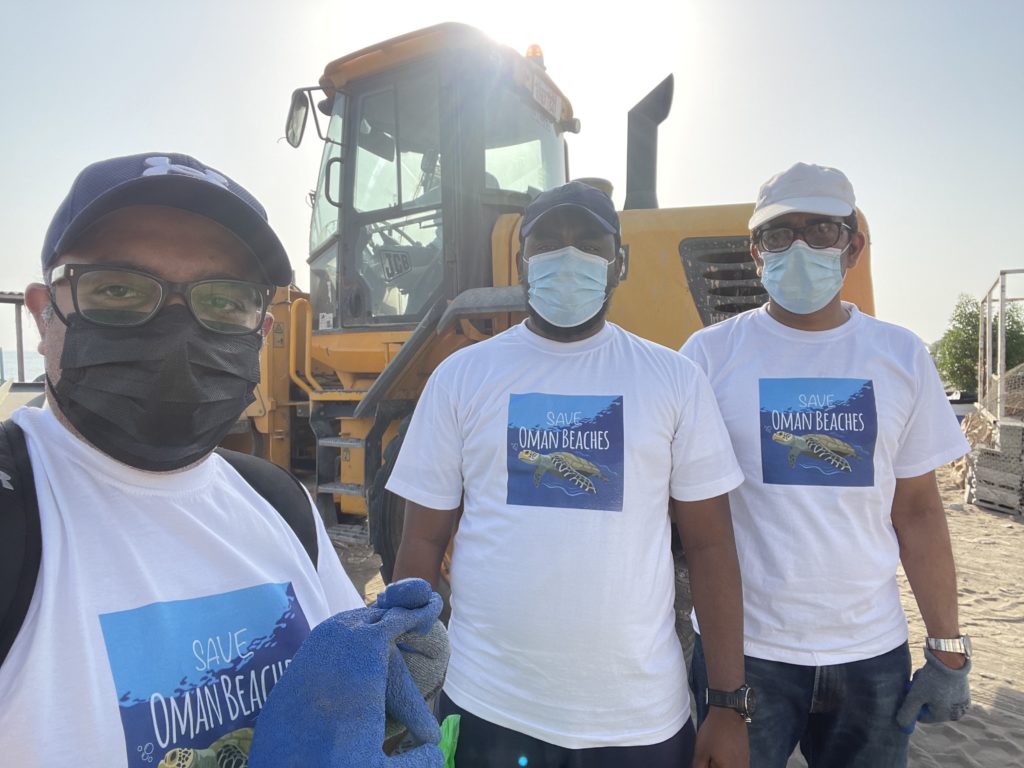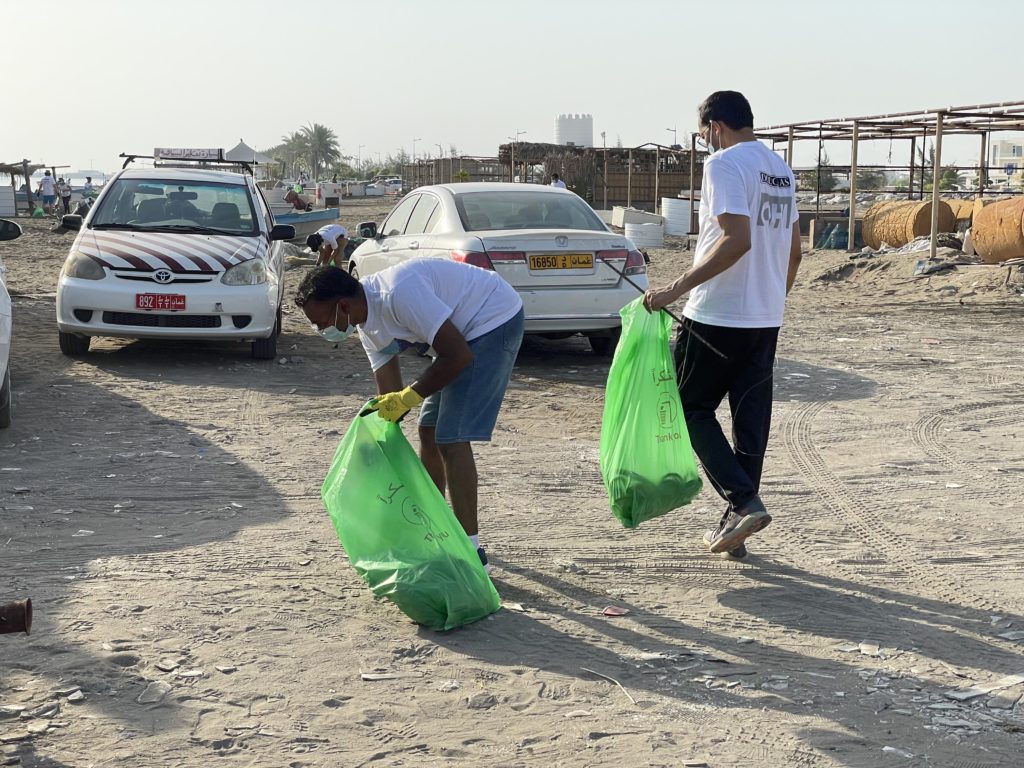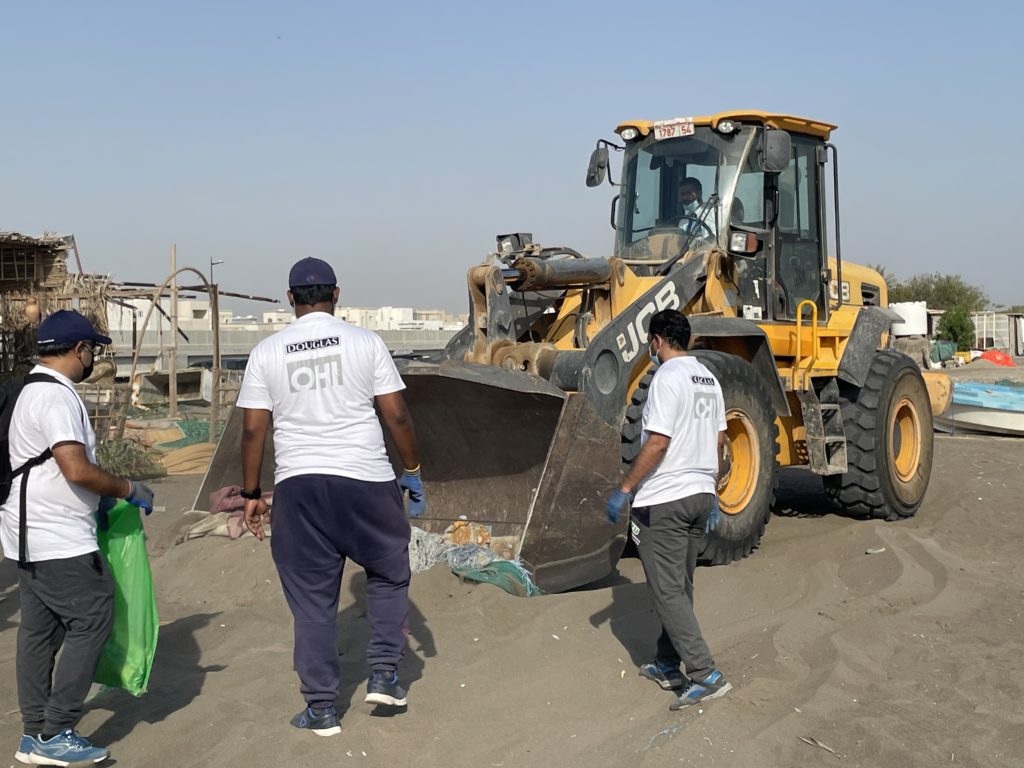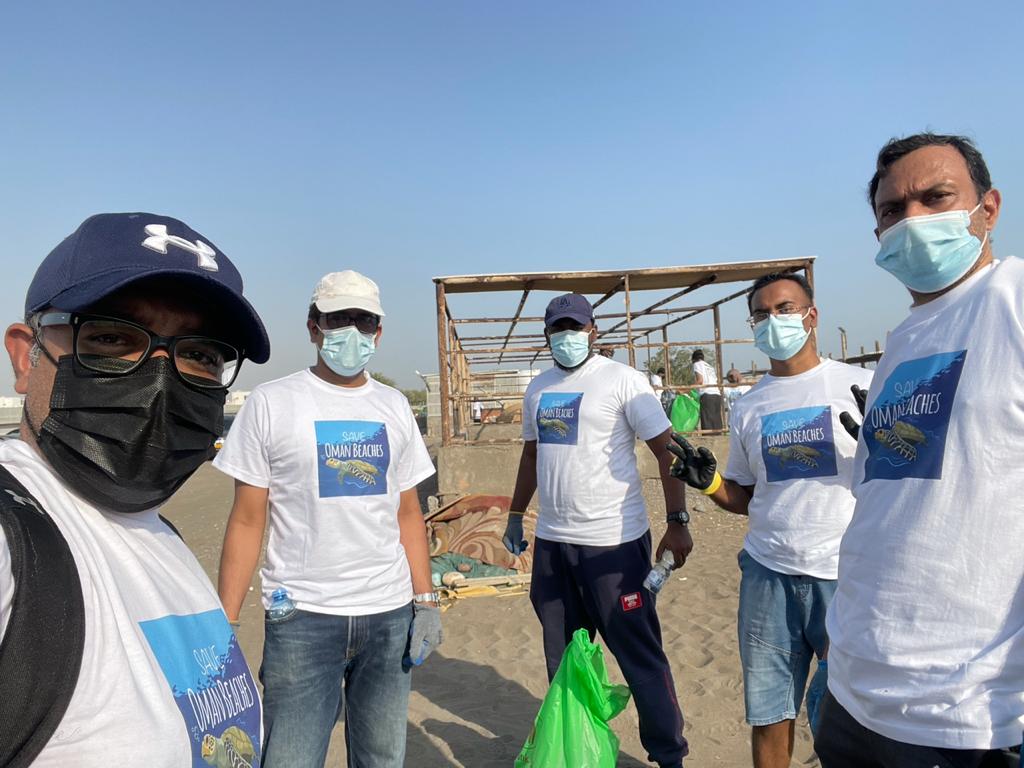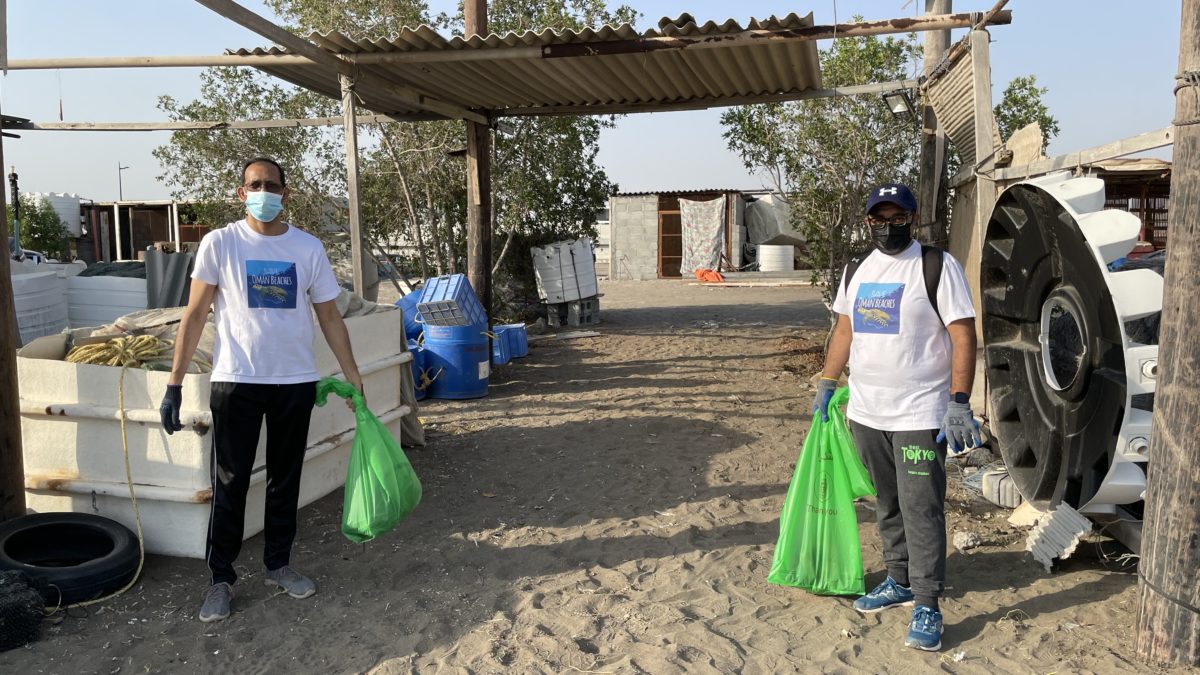
Douglas OHI’s Sustainability Journey and the UN’s Global Goals
May 24, 2021
Reptile Awareness & Safety
May 31, 2021Supporting local environmental action to make a world of difference
Beaches are the bridge between land and the ocean, which is a critical biodiversity area. Cleaning beaches is a step towards cleaning our oceans. In addition, to the environmental benefits, beach cleanups increase volunteer knowledge and awareness of ocean litter. This inspires individuals to change behaviour creating a ripple effect within the community.
A collaboration between Douglas OHI and Save Oman Beaches allowed volunteers to access and clean the beach in Seeb, Muscat.
Special permission was granted by the Royal Oman Police, and over 65 volunteers joined in the 100th Save Oman Beaches cleanup drive. All volunteers adhered to the COVID-19 precautions currently mandated by the Supreme Committee.
Volunteers headed off with large garbage bags, picking up every scrap of debris they can find until they were full to the brim.
The combined team collected 96 bags of debris and 19 tyres. Amongst the rubbish, there was abandoned fishing gear, plastic food wrappers, Cigarette buds, glass and plastic bottles, and aluminium cans.
Peter Baker, Corporate HSSE Manager, Douglas OHI said: “It’s important to remain realistic about what we set out to achieve. I think it’s a real mistake to pretend we’re saving the world with a cleanup, but we should clean up beaches just because it’s the right thing to do, even better, the trash shouldn’t be there in the first instance. I always have to answer the perpetual question of “why should I pick someone else`s litter up?”
It’s relatively easy to answer by remembering that for every piece of litter removed from the beach, there is one less dangerous item that could harm a sea creature or enter the food chain. Cleanups restore beach habitats and I admire those selfless individuals, who on a regular basis put such questions to one side and make the effort to participate.”
To learn about Douglas OHI’s sustainability journey and the UN’s Global Goals please click here.
